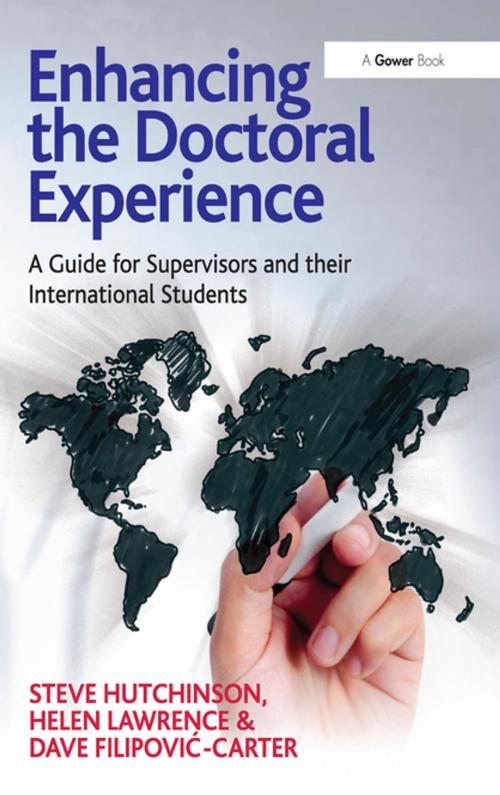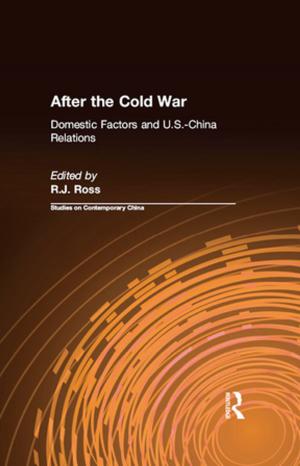Enhancing the Doctoral Experience
A Guide for Supervisors and their International Students
Nonfiction, Reference & Language, Education & Teaching, Higher Education, Study Aids| Author: | Steve Hutchinson, Helen Lawrence | ISBN: | 9781351939973 |
| Publisher: | Taylor and Francis | Publication: | March 2, 2017 |
| Imprint: | Routledge | Language: | English |
| Author: | Steve Hutchinson, Helen Lawrence |
| ISBN: | 9781351939973 |
| Publisher: | Taylor and Francis |
| Publication: | March 2, 2017 |
| Imprint: | Routledge |
| Language: | English |
One of the major intangible benefits associated with the postgraduate research experience is precisely that: the experience. And more specifically, for an increasing number of international research students: the British doctoral experience. This experience is often largely defined and shaped by their relationship with, and support from, their supervisor. Enhancing the Doctoral Experience brings together the authors’ experience and research, frameworks and models as well as pragmatic feedback and understanding. This synthesis of scholarly theory and pragmatic sampling has produced a book that provides a scaffold for students and supervisors to have conversations about their expectations; to discuss what supervision is; to articulate clearly what both parties need in order for a successful relationship to occur, and to build a mutually beneficial endeavour. In many cases, these conversations can be complicated by cultural and linguistic differences so the text explicitly addresses these and other sources of misunderstanding. Against a challenging background of growing numbers of students but also increasing pressures on time and costs, Enhancing the Doctoral Experience offers an approach to improve the effectiveness of the doctoral student and increase the professionalization of research supervision. It does so by providing both with an awareness of, and a toolkit to approach, student diversity.
One of the major intangible benefits associated with the postgraduate research experience is precisely that: the experience. And more specifically, for an increasing number of international research students: the British doctoral experience. This experience is often largely defined and shaped by their relationship with, and support from, their supervisor. Enhancing the Doctoral Experience brings together the authors’ experience and research, frameworks and models as well as pragmatic feedback and understanding. This synthesis of scholarly theory and pragmatic sampling has produced a book that provides a scaffold for students and supervisors to have conversations about their expectations; to discuss what supervision is; to articulate clearly what both parties need in order for a successful relationship to occur, and to build a mutually beneficial endeavour. In many cases, these conversations can be complicated by cultural and linguistic differences so the text explicitly addresses these and other sources of misunderstanding. Against a challenging background of growing numbers of students but also increasing pressures on time and costs, Enhancing the Doctoral Experience offers an approach to improve the effectiveness of the doctoral student and increase the professionalization of research supervision. It does so by providing both with an awareness of, and a toolkit to approach, student diversity.















